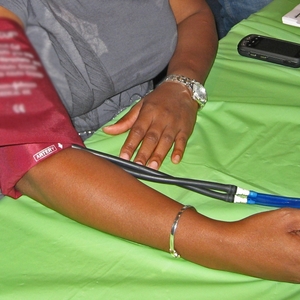There is a massive nursing shortage being faced by countries all around the world. The ever-increasing population means more resources and professionals in the healthcare sector are needed. Though healthcare as a whole suffers from massive shortages, the shortage is felt most keenly within nursing.
Nurses make up for
half the global healthcare workforce. Globally it is estimated that there will be a shortage of between 7 million and 13 million.
A global shortage indicates a global issue. Many professionals believe that to offset this shortage, and finally make headway with improving healthcare as a whole, a global solution is necessary.
The Nursing Shortage and Its Complications
Globally it is estimated that by 2030 there will be a shortage of 7 million to 13 million nurses. This includes the current shortage of 6 million nurses we are currently facing around the world.
Many experts believe
a global solution is essential when the issue spans across borders. Though the issue is a global one, the current method that many developed countries are using is no longer working. In the past, the solution was simply to hire nurses from abroad to work here. On average, it is estimated that 16% of nurses are foreign-born.
The nursing shortage is nothing new. There has
been a shortage of nurses in the United States since the 1930s. Immigration requirements have eased and encouraged international nurses to move to the United States to work there since the 1950s.
While immigration itself is not a problem, looking only for solutions outside of home soil does cause international issues. Hiring talented healthcare workers from other countries often leaves the healthcare situation in their home country in a worse situation. Jamaica, for example, has lost 29% of its critical care nurses to migration.
Hiring from other countries is not a long-term solution. Nor is it a solution that works on a global scale. Improving working conditions, education conditions, and the work/life balance of nurses is a must.
There is a pervasive view that nurses are overworked and underpaid. Addressing the cause of this view, and the view itself, can help transition nursing from a vocation to a vied-for career.
One of the most critical issues that exacerbate the nursing shortage is the fast turnaround of nurses. Thomas Jordan, an American Hospital Association spokesperson, claims that up to
33% of new nurses will leave the workforce within two years.
(more…)




 Response: Cigarette smoking is one of the well-established causes of periodontitis, but the effect of using electronic cigarettes (e-cig), especially its long-term impact on periodontal health, is not yet clearly understood. Considering the increased popularity of e-cig use, especially among teenagers and young adults, and the known effect of high nicotine concentration in e-cigarette products, we conducted this clinical research to see if there were differences in periodontal health between e-cig users, traditional smokers, and nonsmokers. The study consisted of two visits, 6 months apart, where measures of oral and periodontal health were obtained.
Our data showed significantly greater clinical attachment loss in the e-cigarette users and cigarette smokers than in the non-smokers at both study visits. In only e-cigarette users, we observed an over 0.2 mm average increase in the clinical attachment loss after 6 months.
Response: Cigarette smoking is one of the well-established causes of periodontitis, but the effect of using electronic cigarettes (e-cig), especially its long-term impact on periodontal health, is not yet clearly understood. Considering the increased popularity of e-cig use, especially among teenagers and young adults, and the known effect of high nicotine concentration in e-cigarette products, we conducted this clinical research to see if there were differences in periodontal health between e-cig users, traditional smokers, and nonsmokers. The study consisted of two visits, 6 months apart, where measures of oral and periodontal health were obtained.
Our data showed significantly greater clinical attachment loss in the e-cigarette users and cigarette smokers than in the non-smokers at both study visits. In only e-cigarette users, we observed an over 0.2 mm average increase in the clinical attachment loss after 6 months. 













 Johonniuss Chemweno
CEO of VIPStarNetwork
MedicalResearch.com: What is the mission of VIP StarNetwork?
Response: VIP StarNetwork’s mission is to expand access to healthcare services and information, especially in underserved and underprivileged communities. Our comprehensive group of health experts, leading physicians, and healthcare executives are working to create a meaningful and safe environment to ensure that patients have equitable and streamlined access to vaccines and other forms of care.
Johonniuss Chemweno
CEO of VIPStarNetwork
MedicalResearch.com: What is the mission of VIP StarNetwork?
Response: VIP StarNetwork’s mission is to expand access to healthcare services and information, especially in underserved and underprivileged communities. Our comprehensive group of health experts, leading physicians, and healthcare executives are working to create a meaningful and safe environment to ensure that patients have equitable and streamlined access to vaccines and other forms of care.




 MedicalResearch.com: What is the mission of
MedicalResearch.com: What is the mission of 




